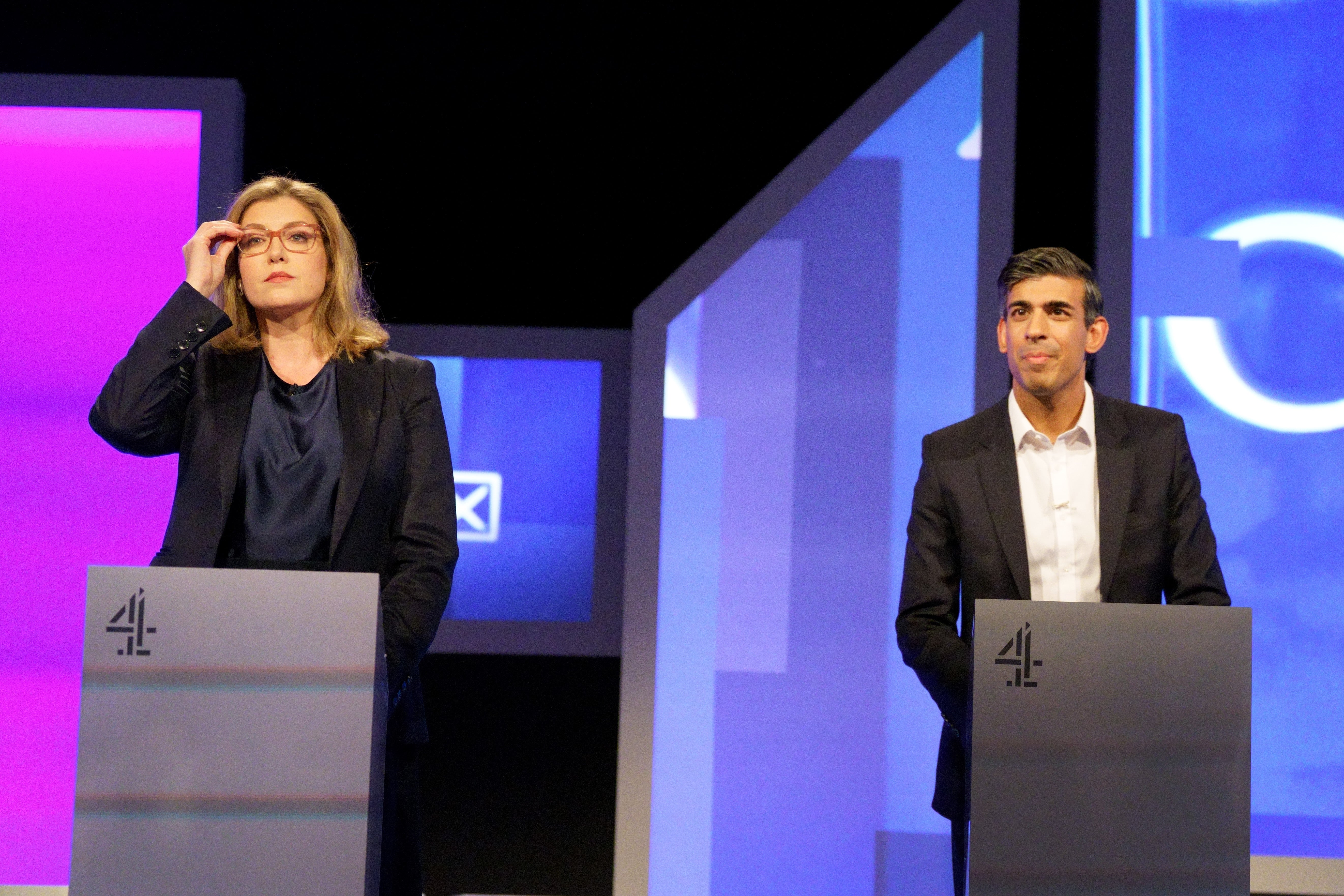TV debates and hustings are a chance for the people to influence the choice of next prime minister
Editorial: The Conservative Party members who will make the final choice need to see how the public react to the candidates

The first television debate of this Conservative leadership election was a significant moment. It revealed Tom Tugendhat, currently trailing in last place, as the best communicator of the five remaining candidates. It confirmed Rishi Sunak as the best qualified for the testing office of prime minister. Penny Mordaunt held her own with a confident but low-content performance. Kemi Badenoch laid an unmistakeable claim to a place in the cabinet. And Liz Truss performed poorly, exposing weaknesses in her claim to the top job that will need to be rectified in her next few engagements.
The central exchanges of the debate came when Mr Sunak challenged Ms Mordaunt and Ms Truss over their promises to cut taxes. The former chancellor persuaded Ms Mordaunt to admit that she had yet to set out how she would fund her promise to cut income tax by raising the thresholds in line with inflation. And he pushed Ms Truss into implying that she would pay for her larger tax cuts by borrowing – because, she said, the UK’s debt is lower than that of most other countries.
Both candidates will need to provide further and better particulars in the next debate, on Sunday night, if they are to compete with Mr Sunak in promising sound money.
The other candidates will also need to offer more clarity on their commitment to net zero carbon, after Mr Sunak delivered a strong defence of the 2050 target. He linked his desire to avoid burdening future generations with debt to his determination to preserve a sustainable climate, while also making the important point that the government had to take people with it. Other candidates offered weasel words about being committed to the target, but suggested that it should be achieved in different ways. Ms Truss was the only one to mention nuclear power. Again, we need to know more.
That is why the televised debates, interviews, shouted journalists’ questions, and the hustings that will be organised by the Conservative Party are so important. They are the only chance for the wider electorate to have any influence over the choice of our next prime minister. It is an indirect form of accountability, but it is the only one we have. It is only by opinion polls and social-media commentary after these debates that the public can have any say at all.
To keep up to speed with all the latest opinions and comment, sign up to our free weekly Voices Dispatches newsletter by clicking here
There have been complaints that the final choice of the next prime minister is in the hands of a small and unrepresentative group of people, who by definition are not normal, because they are members of a party. In some ways, it would be better to have stuck with the system that existed before 1981 in Labour’s case, and 1998 in the Conservatives’, in which MPs alone decided who the party leader should be. They, after all, are the people who have worked with the candidates and know them best. But the feeling that the House of Commons was a closed club, out of touch with the public, forced the change in both of the main parties, and neither is likely to change back.
Still, even the abnormal people who are party members are strongly influenced by one thing, which is the need to win elections. If party members can see that a candidate is more confident, better able to explain difficult decisions, less afraid of questions from journalists or from the public, or scores better in opinion polls, they are more likely to entrust them with their vote. That is how the public’s reaction to the candidates in debates and hustings can sway the Conservative Party’s choice.
That is why it is a democratic necessity for the candidates, and especially the final two candidates, to be exposed to the tough questions that will clarify what policies they would pursue, and what kinds of prime minister they would be.



Join our commenting forum
Join thought-provoking conversations, follow other Independent readers and see their replies
Comments